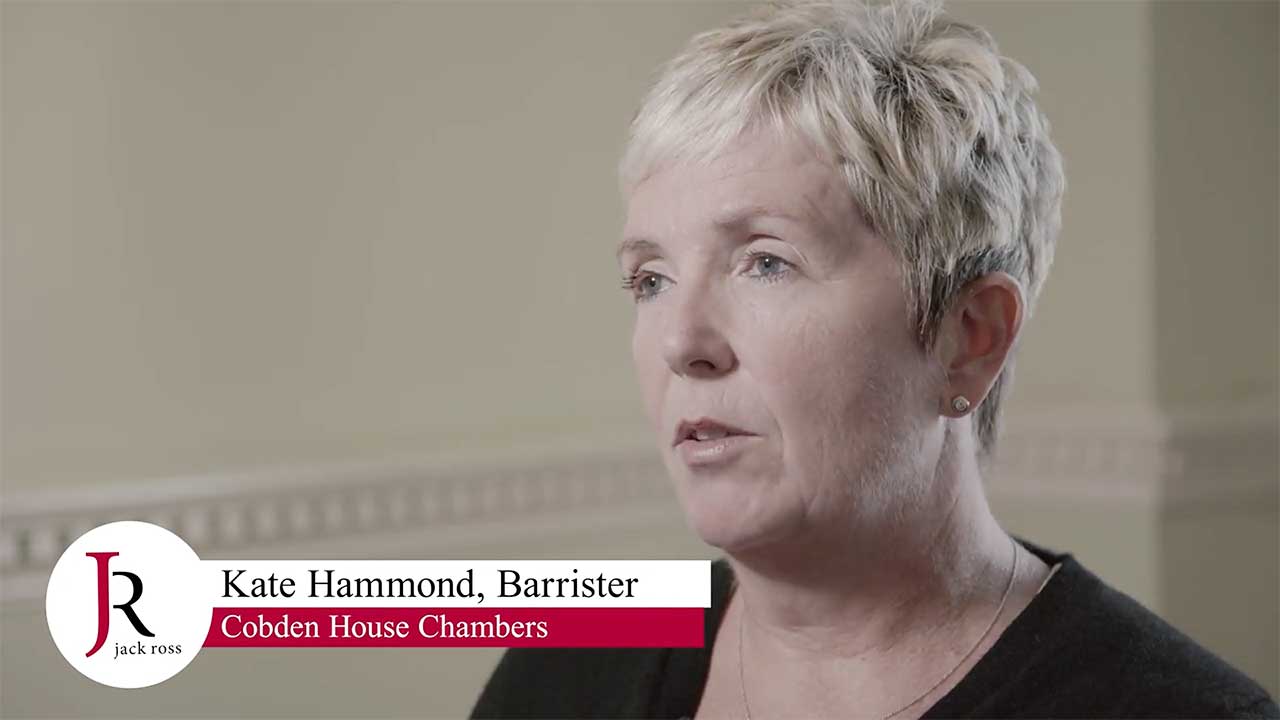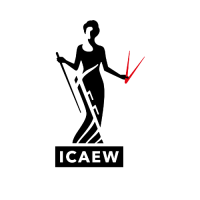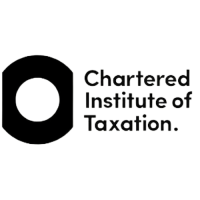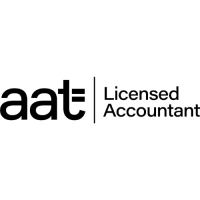Last updated: 21 February 2026
Introduction to Tax and Pension Planning for Barristers
Whether you are a junior barrister just starting out or an experienced professional taking silk, meticulous financial planning for your retirement is very important. This article is a comprehensive guide to the journey from savings goals to your retirement date.
You will learn about the implications of being self-employed to the role chambers play in your financial affairs. Understand the variety of investment options at your disposal, and weigh the pros and cons of different pension plans.
You will also discover the importance of seeking professional financial advice tailored to barristers, alongside additional financial considerations like mortgage planning and preparing for unforeseen expenses.
Please note: the contents of this article do not consist of financial advice. Always consult a professional advisor before making an investment. With any investments, your capital is at risk.
Why Tax Planning is Crucial for Barristers
Tax planning is an essential component of being self-employed. Unlike salaried professionals, you do not have the cushion of an employer-backed pension scheme or other retirement benefits. The responsibility of planning for a financially secure future lies entirely with you. Tax planning, when executed effectively, can significantly maximise your retirement savings and minimise your tax liability. This includes understanding various tax allowances and benefits that you can leverage to bolster your pension pot and other investments.
The Importance of Retirement Planning
Retirement planning goes beyond just saving a part of your income every month. It involves a thorough understanding of your financial goals, the lifestyle you aspire to post-retirement, and the steps needed to get there. Given that many barristers will be in retirement for over two decades, a comprehensive financial plan is indispensable. This is particularly crucial for barristers at all stages of their careers, whether you are a junior barrister or taking silk. The earlier you start, the better your chances of enjoying a financially secure retirement.
The Unique Financial World of Barristers
Barristers at All Stages: From Junior to Taking Silk
Financial planning varies significantly depending on the stage of your career. For junior barristers, the focus might be more on managing student loans and building an emergency fund, but pension contributions should not be overlooked. As you progress in your career, your financial needs and tax considerations become increasingly complex. At this stage, you may be looking at maximising your pension contributions or even purchasing your chamber premises through a Self Invested Personal Pension Scheme. Financial planning is a dynamic process, and your strategies should evolve with your career.
The Role of the Chamber in a Barrister’s Financial Affairs
Your chamber plays a significant role in your financial affairs. Not only does it serve as your professional base, but it can also be an asset in your financial portfolio. Some barristers use their Self Invested Personal Pension Schemes to purchase their chamber premises, making it a tax-efficient investment. The rental income generated can be added to the SIPP without any deduction for income tax. Moreover, the appreciation in the value of the chambers building will also be free from capital gains tax. Understanding the financial implications and benefits associated with your chamber can be a key element in your long-term financial planning.
Pension Schemes and Allowances
Understanding the Lifetime Allowance
The concept of a Lifetime Allowance (LTA) is a critical aspect of pension planning. Currently, the LTA stands at £1,073,100 and is frozen until April 2026. Any excess over this limit incurs a tax charge, which could be substantial. There are protections, like Primary and Enhanced Protection, that can help you safeguard pre-existing pension rights and benefits, but these need to be carefully considered and acted upon within specific timelines. Being aware of your LTA and the available protections can save you from unexpected tax liabilities down the line.
How Pension Contributions are Calculated
Pension contributions are calculated based on your Net Relevant Earnings (NRE), which are essentially your earnings from self-employment less allowable expenses. The specific percentages vary by age and other factors, but the fundamental concept remains: the more you earn, the more you can contribute to your pension. It is important to understand that exceeding the annual allowance could result in a tax charge, so effective planning is crucial.
Tax Relief and Its Impact on Pension Contributions
Tax relief on pension contributions serves as a significant incentive for saving efficiently. Your pension provider will claim basic rate tax relief ‘at source’, meaning that a percentage of your contributions will effectively be topped up by the government. For higher earners, this top-up can result in substantial savings over time. For instance, if you contribute £80, the government may add another £20, making it £100 in total. Being savvy about leveraging tax relief can significantly improve your financial position and accelerate your journey towards a comfortable retirement.
Investment Options for Barristers
Standard Personal Pensions vs Stakeholder Pensions
When considering investment options for your retirement, you have various choices, including Standard Personal Pensions and Stakeholder Pensions. Standard Personal Pensions often offer a broad range of unit-linked funds, allowing you to tailor your portfolio to your specific risk tolerance and financial objectives. On the other hand, Stakeholder Pensions come with a set of legislated features such as low minimum contributions, no initial charges, and capped annual management fees. While Stakeholder Pensions are designed to be more accessible, Standard Personal Pensions may offer you greater flexibility in investment choices.
Delving into Self-Invested Personal Pension Schemes (SIPPs)
Self-Invested Personal Pension Schemes (SIPPs) open up a world of broader investment choices, including the ability to invest directly in the stock market. SIPPs have been particularly popular among barristers for the option they provide to purchase chamber premises in a tax-efficient manner. Rental income and any capital appreciation in the property value within the SIPP are tax-free. The flexibility and control offered by SIPPs make them a compelling option if you are looking to diversify your investment portfolio substantially.
Investment Considerations for Long-term Financial Goals
Investing for retirement is a long-term commitment, and it is crucial to align your investment choices with your financial goals. Whether you opt for a Standard Personal Pension, a Stakeholder Pension, or a SIPP, each comes with its own set of features, risks, and benefits. Asset allocation, risk tolerance, and time horizon are key factors that should influence your investment decisions. Diversifying across different asset classes can help mitigate risk while potentially enhancing returns. By carefully considering these aspects, you can make more informed investment choices that not only suit your current financial position but also your long-term retirement objectives.
The Pros and Cons of Different Pension Plans
Assessing Annuities for Stable Income
Annuities provide a guaranteed income for life, offering stability and peace of mind in retirement. Once you purchase an annuity, you no longer have to worry about market fluctuations affecting your income. However, the downside is that annuity rates have been falling due to increasing longevity and lower interest rates. Moreover, once an annuity is purchased, you generally cannot alter the terms or access a lump sum, which means you are locked into the rate at the time of purchase. This could be a limitation if annuity rates improve in the future.
The Flexibility of Drawdown Pensions
Drawdown pensions, particularly flexi-access drawdowns, offer significant flexibility. You can take out money as and when you need it while the rest remains invested. You also have the option to purchase an annuity later. Flexibility can be both an advantage and a risk; while it allows you to adapt to changing financial needs, it also exposes you to market risks and the possibility of depleting your funds too quickly. You will need to manage your withdrawals carefully to ensure financial security throughout retirement.
The Merits and Limits of Uncrystallised Funds Pension Lump Sums (UFPLS)
Uncrystallised Funds Pension Lump Sums (UFPLS) offer another level of flexibility by allowing you to take lump sums directly from your pension pot without having to go into drawdown or purchase an annuity. You can take the entire amount or just a portion, making it adaptable to your financial needs. However, the tax implications can be significant. While 25% of each withdrawal is tax-free, the remaining 75% is subject to income tax at your marginal rate. This could result in a hefty tax bill if not carefully planned.
Each of these pension options has its merits and limitations. Your choice should be based on your individual circumstances, risk tolerance, and long-term financial goals. By understanding the pros and cons, you can make a more informed decision that aligns with your retirement planning strategy.
Tax Implications and Financial Advice
Understanding Tax Charges on Pension Contributions
While contributions to a pension scheme generally attract tax relief, exceeding the annual allowance or the lifetime allowance can trigger tax charges. For example, if your pension contributions surpass the annual allowance, which is currently set at £40,000, you will incur an annual allowance charge. The charge is levied on the excess amount and is added to the rest of your taxable income for the year. Understanding these tax nuances is crucial for optimising your pension contributions.
Importance of Financial Advice to Barristers
Given the complexity of tax laws and the varied financial needs at different stages of a barrister’s career, professional financial advice is not just recommended but often essential. The self-employed nature of the profession adds another layer of complexity to financial planning, making the need for specialist advice even more pressing. From pension planning to tax-efficient investments, a financial advisor can offer tailored solutions that align with both your career and retirement objectives.
How a Financial Planner Can Help Achieve Financial Security
A financial planner can serve as a valuable partner in your journey towards financial security. They can assess your current financial position, help you set realistic financial goals, and develop a comprehensive financial plan. They can also assist with complex decisions like choosing between different pension options, investing in a tax-efficient manner, and planning for eventualities such as illness or changes in tax laws. Their advice can provide you with the peace of mind that comes from knowing that your financial affairs are in competent hands, freeing you to focus on your legal practice.
The tax implications of your retirement planning choices can have a long-lasting impact on your financial health. Seeking expert financial advice can be a prudent step in ensuring that you make the most of the allowances and opportunities available to you, whilst avoiding costly mistakes.
Additional Financial Considerations
Mortgage Planning and Its Tax Implications
Owning property, perhaps through a mortgage, is often a significant part of a barrister’s financial portfolio. Given that mortgage payments are typically one of your largest monthly expenses, it is essential to understand the tax implications. Unlike pension contributions, mortgage payments do not attract tax relief, but the interest payments on a buy-to-let mortgage may be offset against rental income for tax purposes. Structuring your property investments in a tax-efficient manner could save you a considerable amount in the long term.
Business Owners and Financial Independence
Many barristers run their own chambers or legal consultancy services, effectively making them business owners. As such, achieving financial independence requires a nuanced strategy that goes beyond pension planning. Business structures, such as Limited Liability Partnerships (LLPs) or corporations, have their own tax implications, which can significantly affect your financial freedom. Furthermore, there is the question of succession planning and possibly selling your stake in the business as you approach retirement. Each of these elements requires comprehensive advice to ensure you are on the path to financial independence.
Planning for Unforeseen Expenses
The nature of the barrister profession often means grappling with a hectic schedule, leaving little time for intricate financial planning. Having a contingency fund and proper insurance cover can act as a financial cushion. Given the time-sensitive nature of your profession, consulting a financial planner to manage these aspects can be a prudent decision. They can provide expert advice tailored to your unique needs, ensuring you are well-prepared for any financial bumps down the road.
Navigating these additional financial considerations effectively could require tailored advice. Whether it is mortgage planning, business ownership, or preparing for unforeseen expenses, having a robust strategy can make a significant difference in your financial health.
Conclusion and Next Steps
The Path to Financial Freedom for Barristers
Financial freedom does not occur overnight; it is the result of careful planning, savvy investing, and meticulous attention to all aspects of your financial affairs. From understanding the nuances of pension schemes to optimising tax relief and diversifying investment portfolios, the roadmap to financial freedom is multi-faceted. As a barrister, specific considerations, like being self-employed and possibly running a business, add layers of complexity to your financial planning. Committing to ongoing financial education and consultation with experts can significantly enhance your financial security and freedom.
Tax-Efficient Investments for Barristers
Beyond pensions, barristers on higher incomes can reduce their tax liability through government-backed venture investment schemes. These carry genuine risk of total loss but offer substantial tax relief that pensions cannot replicate.
Enterprise Investment Scheme (EIS)
EIS provides 30% income tax relief on investments up to £1,000,000 per tax year (£2,000,000 if at least £1,000,000 is invested in knowledge-intensive companies). Shares must be held for a minimum of three years. Qualifying investments are exempt from capital gains tax on disposal and offer loss relief against income tax if the company fails. Relief can be carried back to the previous tax year.
Seed Enterprise Investment Scheme (SEIS)
SEIS targets earlier-stage companies and offers 50% income tax relief on investments up to £200,000 per tax year. It also provides a CGT exemption on gains reinvested from other assets. The higher relief rate reflects the higher failure rate of seed-stage businesses.
Venture Capital Trusts (VCTs)
VCTs are listed investment companies that spread risk across a portfolio of small qualifying businesses. They offer 30% income tax relief on investments up to £200,000 per tax year, with tax-free dividends throughout the holding period. Shares must be held for at least five years to retain the income tax relief.
Worked Example: EIS Investment on £200,000 Earnings
A barrister earning £200,000 invests £50,000 into an EIS-qualifying company in 2025/26:
- Income tax relief: £50,000 × 30% = £15,000 reduction in that year’s tax bill
- Effective cost of investment: £50,000 − £15,000 = £35,000
- If the company succeeds: any gain on disposal after three years is completely free of CGT
- If the company fails: the remaining £35,000 loss qualifies for further income tax relief at the barrister’s marginal rate (45%), recovering up to £15,750 — reducing the total cash at risk to approximately £19,250
Risks and Warnings
These are classified as high-risk investments for good reason. EIS and SEIS companies are typically early-stage, illiquid, and unquoted — there is no secondary market for the shares, and the business may fail entirely. HMRC will claw back all tax relief if qualifying conditions are breached (for example, if shares are sold before the minimum holding period, or if the company ceases to qualify). Barristers should treat any amount invested as money they can afford to lose completely.
For those who want tax-efficient growth without venture risk, ISAs remain a straightforward option: £20,000 per year sheltered from income tax and CGT, with full liquidity. As Making Tax Digital requirements expand, maintaining clear digital records of all investment income — dividends, disposals, and relief claims — becomes essential regardless of which route is chosen.
Professional advice from both a specialist accountant and a regulated financial adviser is not optional here. The interaction between EIS relief, pension annual allowances, and the personal allowance taper at £100,000 creates planning opportunities that are easy to get wrong without expert guidance.
Frequently Asked Questions
What are the best retirement plans for self-employed barristers?
Explore various retirement plans, including PPPs and SIPPs, tailored to meet the unique needs of self-employed barristers for financial security.
How can tax planning benefit a barrister’s financial health?
Tax planning is crucial for barristers to optimize tax relief, understand allowances, and make efficient pension contributions for long-term benefits.
Why is financial advice essential for barristers?
Given the complexities of being self-employed and the unique financial landscape of the legal profession, specialized financial advice is indispensable for barristers.
Can barristers claim tax relief on EIS investments?
Yes. Self-employed barristers who invest in qualifying EIS companies receive 30% income tax relief, meaning a £50,000 investment reduces that year’s tax bill by £15,000. The relief is claimed through Self Assessment, and shares must be held for at least three years. Relief can also be carried back to the previous tax year if the current year’s allowance is insufficient. HMRC issues an EIS3 certificate once the company has traded for at least four months, which must be submitted with the tax return.
What are the risks of EIS and SEIS for barristers?
The primary risk is total loss of capital. EIS and SEIS companies are typically early-stage, unquoted, and illiquid — shares cannot be easily sold, and the business may fail. If qualifying conditions are breached (such as selling shares within three years for EIS or the company losing its qualifying status), HMRC claws back all tax relief previously claimed. Loss relief mitigates but does not eliminate the downside: even with income tax relief on entry and loss relief on failure, a barrister investing £50,000 could still lose approximately £19,250 in real terms. Independent financial advice from an FCA-regulated adviser is essential before committing funds.





